Election 2015: Is immigration an issue in Wales?
- Published
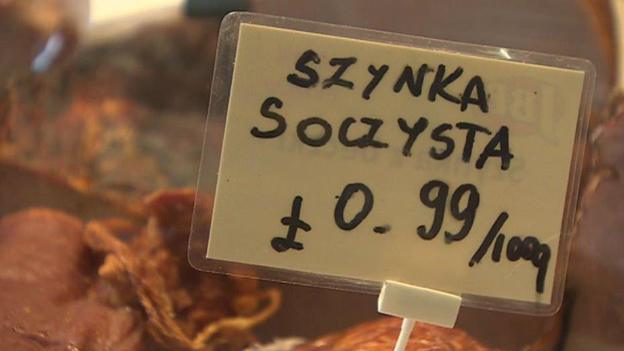
Llanelli is one of the major towns and cities in Wales which has seen migration over the last decade
You might have noticed a difference over the last few years in parts of our cities and major towns.
You can hear it in the different languages being spoken and in the food for sale in the shops.
In the decade after new countries joined the EU, the number of migrant workers from outside the UK in Wales has risen from 51,000 to 90,000.
This is an increase from 4% to 6.5% of the workforce.
The issue of immigration has also been one of the hottest election topics.
In a poll for BBC Wales, 1,000 people were questioned in January about what impact immigration had on the ability of people to get a job.
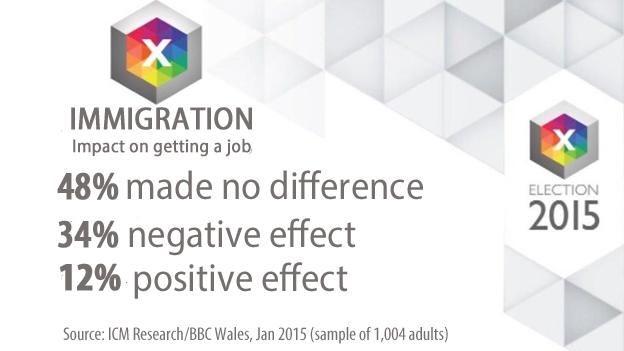
The poll question was asked of more than 1,000 people in Wales in January
Nearly half said it made no difference but for more than a third, it had a negative effect.
I've been to Llanelli in Carmarthenshire to talk to migrant workers from Poland and their employers.
They hold Polish Masses in the Catholic church here, while Polish stores supply a taste of home.
The promise of jobs was the initial magnet. People came here in search of better paid work, bringing skills and a work ethic employers liked.

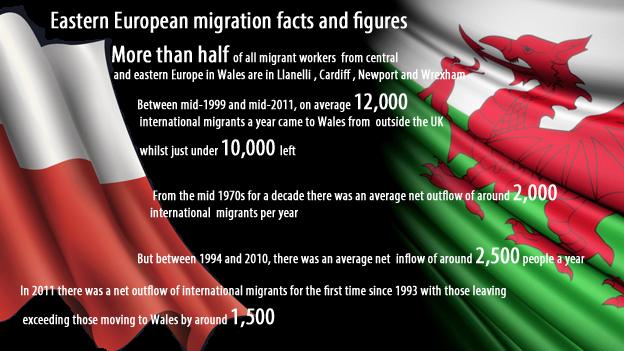
A net outflow of migrants in 2011 was attributed to the economic downturn
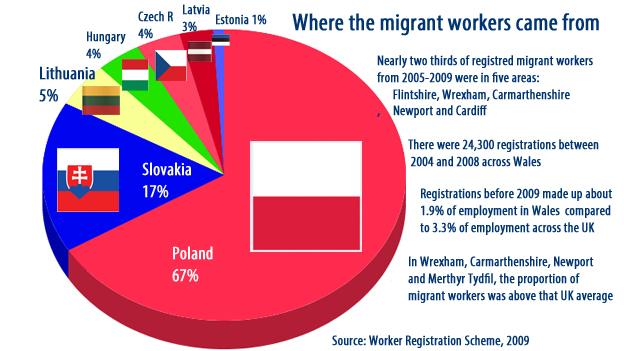
This shows where the migrants came from - and where they went - between 2004 and 2009

George Parker runs a plant hire firm set up by his father nearly 35 years ago. He employs 70 people, seven of whom are Polish, including an accountant, mechanics and cleaners.
Lidka Porczyk has been here 10 years now and her children regard themselves as Welsh.
She said: "My husband came here a year before me. I only spent a holiday here then stayed and my children went to school here, it's been 10 years and my children like it."
She said she likes her job, saying "the boss is very good, it's a pleasant atmosphere".
But Mr Parker recognises some people are more anxious.
He said: "I can understand there is a concern as there are open borders in Europe - so there is the question how many are going to come and are they going to take the work of indigenous people?
"It's something that should be discussed and the more open we are about it the better."
Our Lady Queen Of Peace Catholic church in Llanelli holds services in Polish
In Llanelli town centre, immigration was not the biggest issue for those shoppers I spoke to. There was a sense from some it had to be managed or that migrants who came for work were needed.
Rev Aled Edwards, chair of the Wales Migration Partnership, has conducted some of the most detailed research into attitudes towards immigration here.
He said Wales was well adapted to immigration from its history and EU migrants had been well received and frequently did jobs - like meat processing and abattoir work - that local people preferred not to do.
"There's some degree of negativity in the polling which conforms to areas which are poorer or with poor academic achievement," he said.
"There are issues around the lower end of the economy where there is a competition for jobs with low wages, in places like Merthyr, where issues like housing become contentious. But overall there's no loss in terms of the economy or welfare provision."

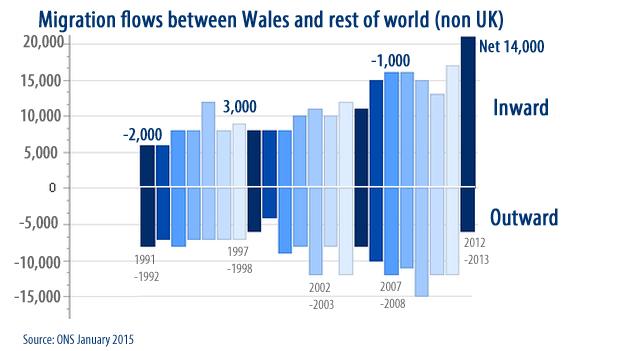
This shows the net international migration in and out of Wales over more than 20 years

Mr Edwards said there was a flow in and out of migrant workers, which depended on how well the economy was performing.
But others settled.
"Once you move away from the polling and look at the experience in communities, people are much warmer and there's a welcome there," he added.
"There's no evidence we buck the trend and are different from the rest of the UK. But there's only 5.5% of the inward migration into Wales and issues like the economy and health will play a huge part."